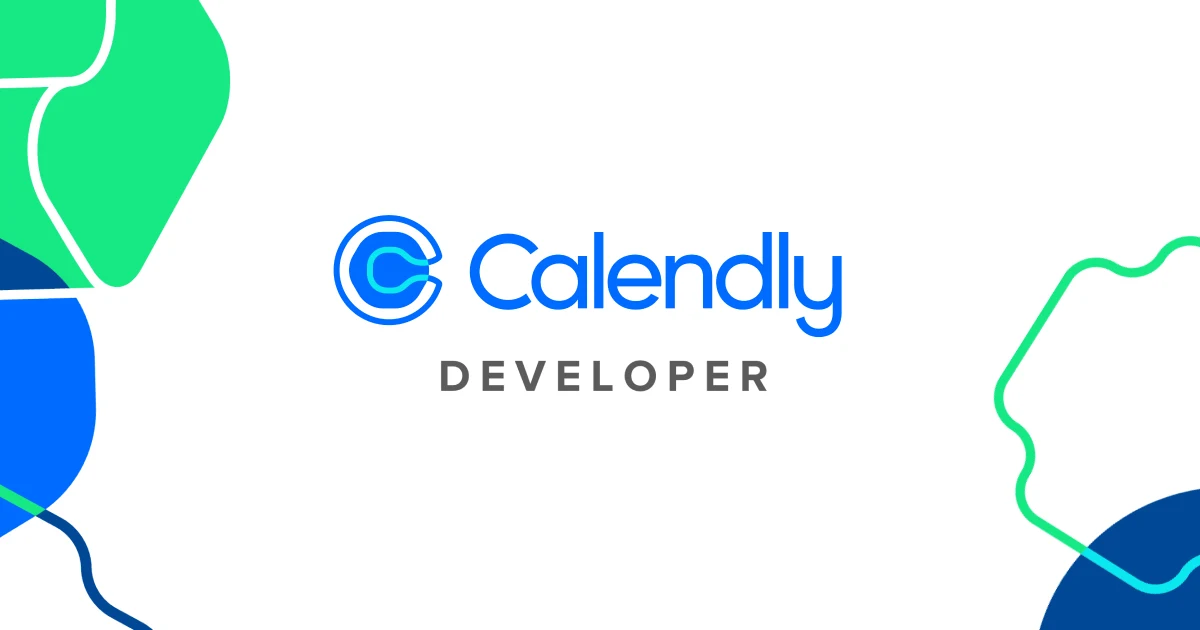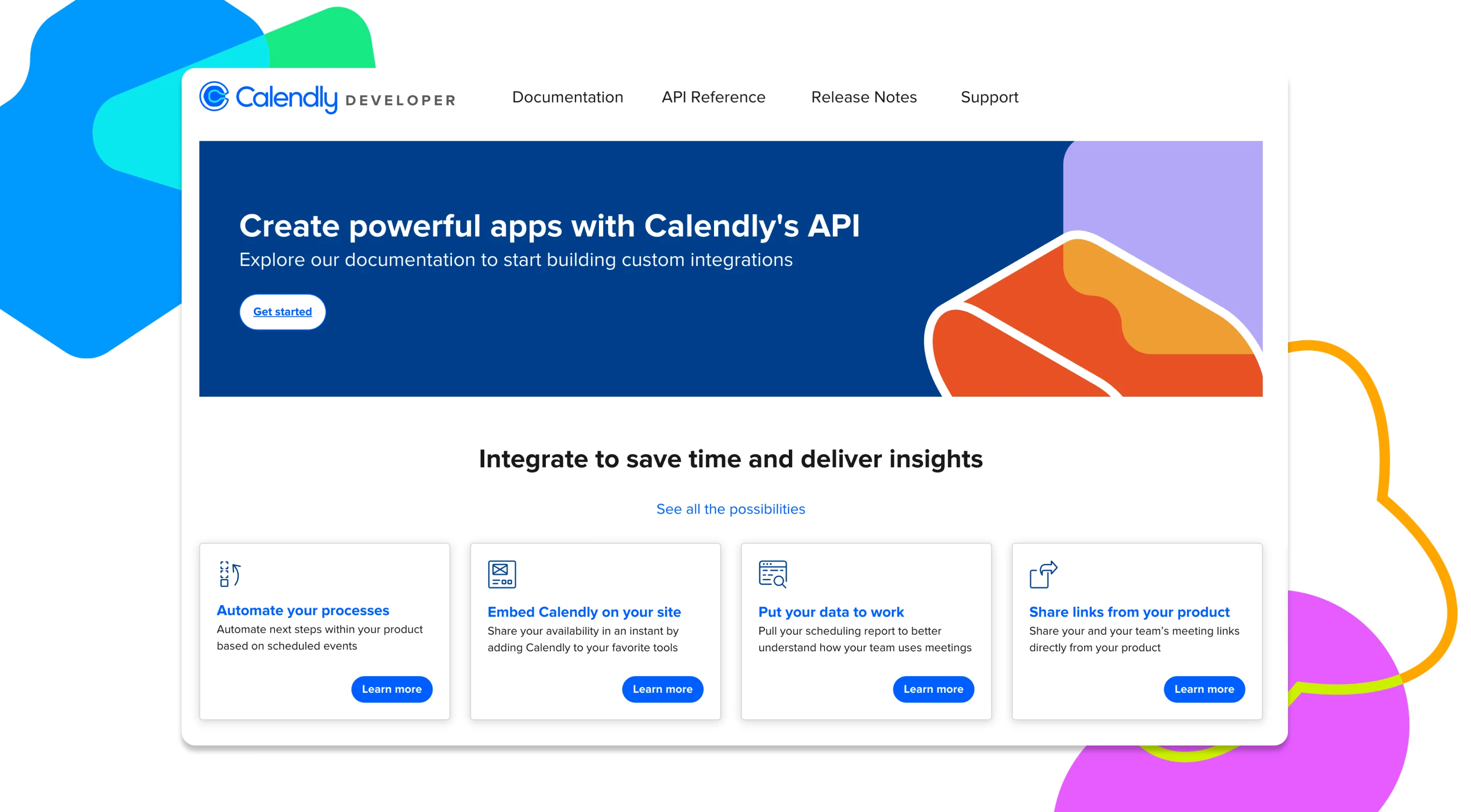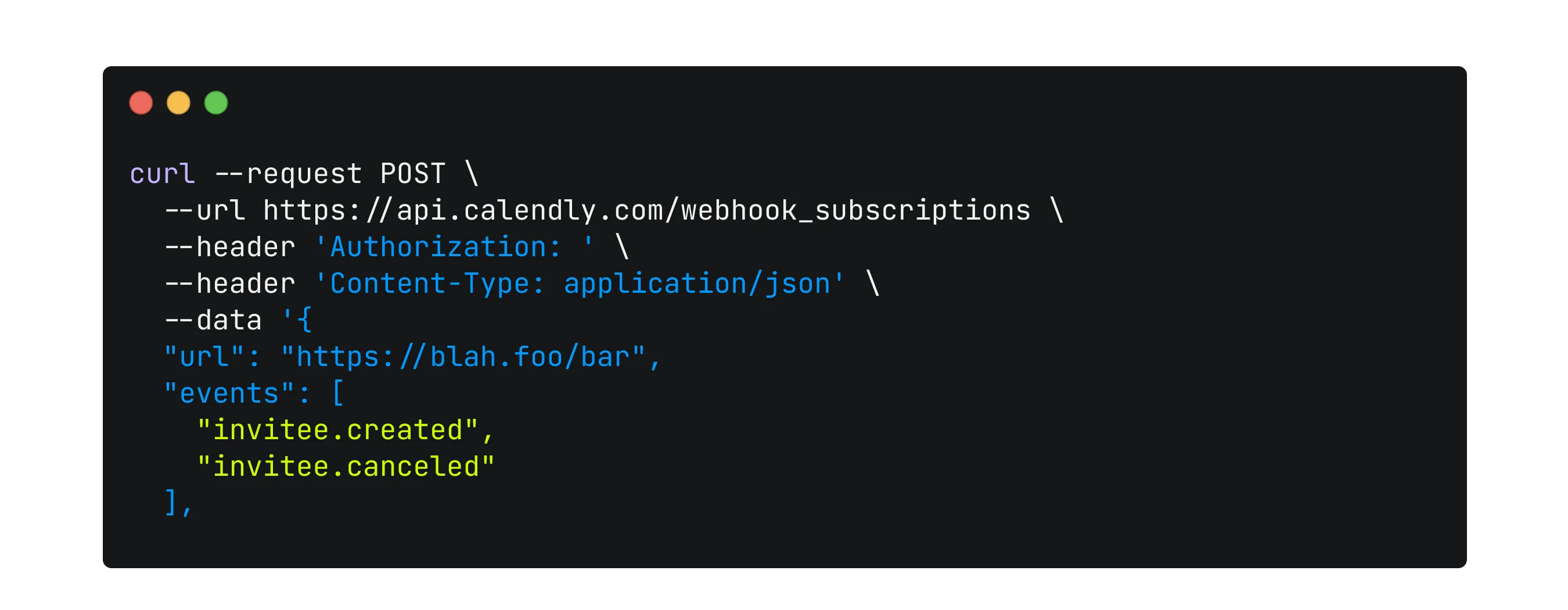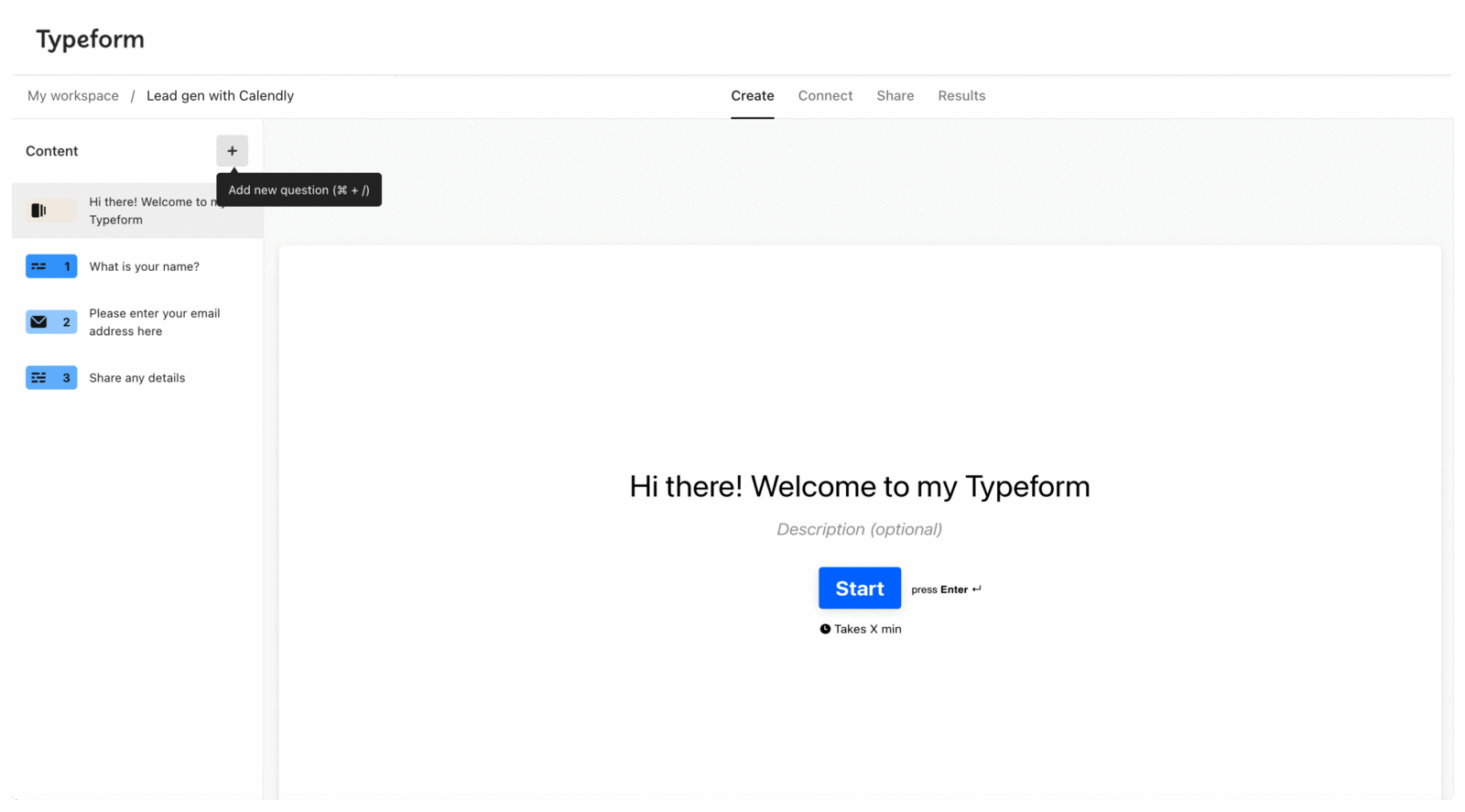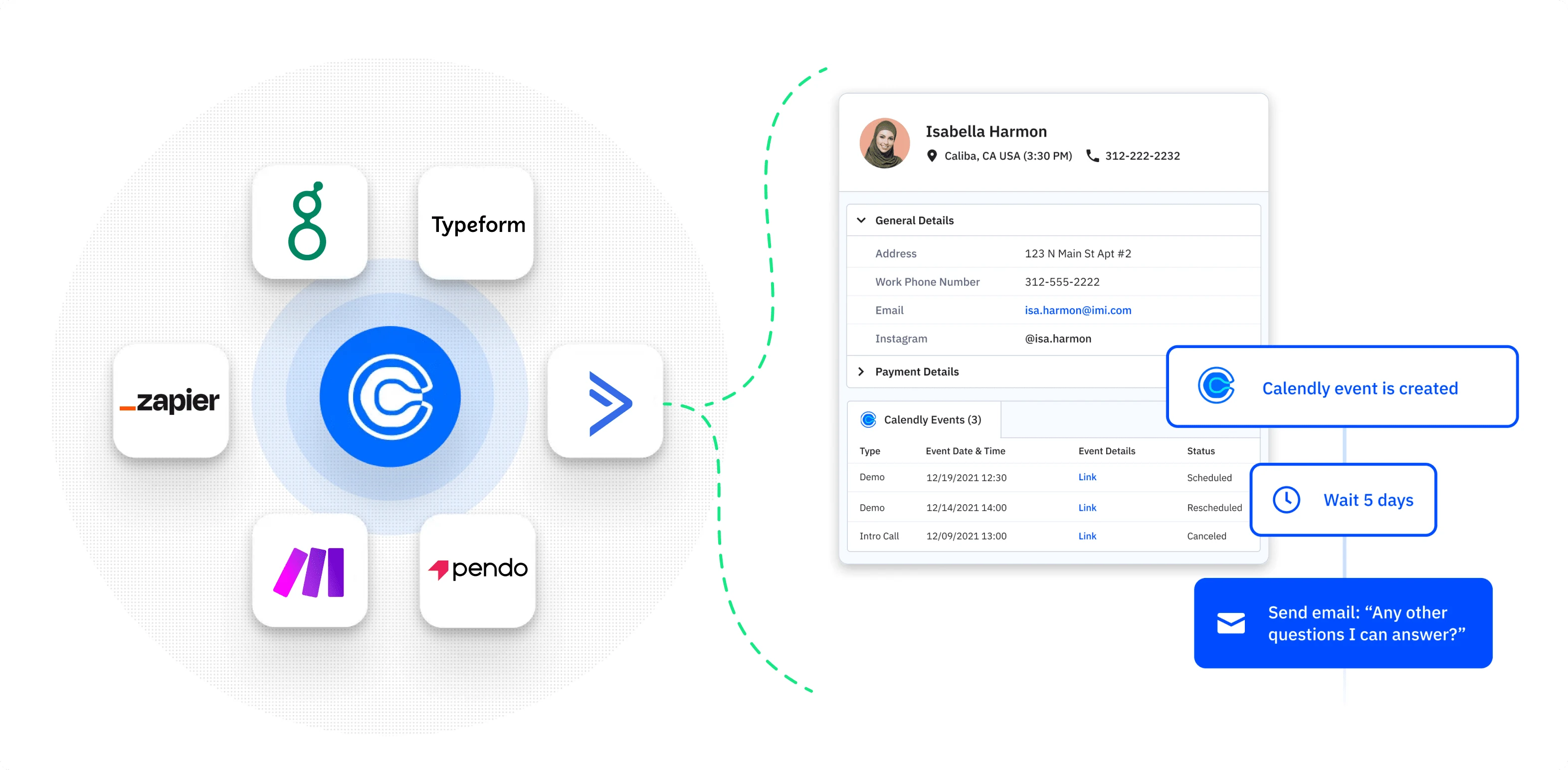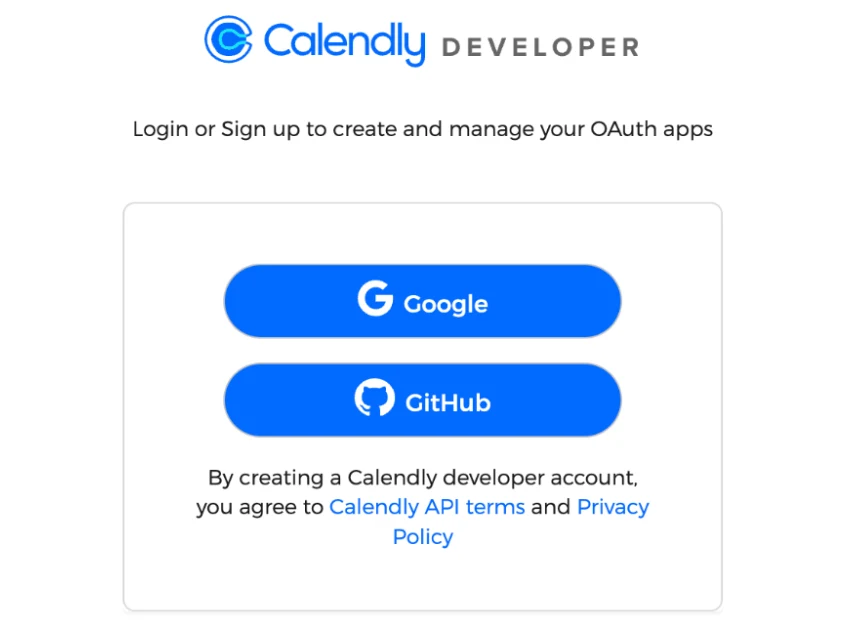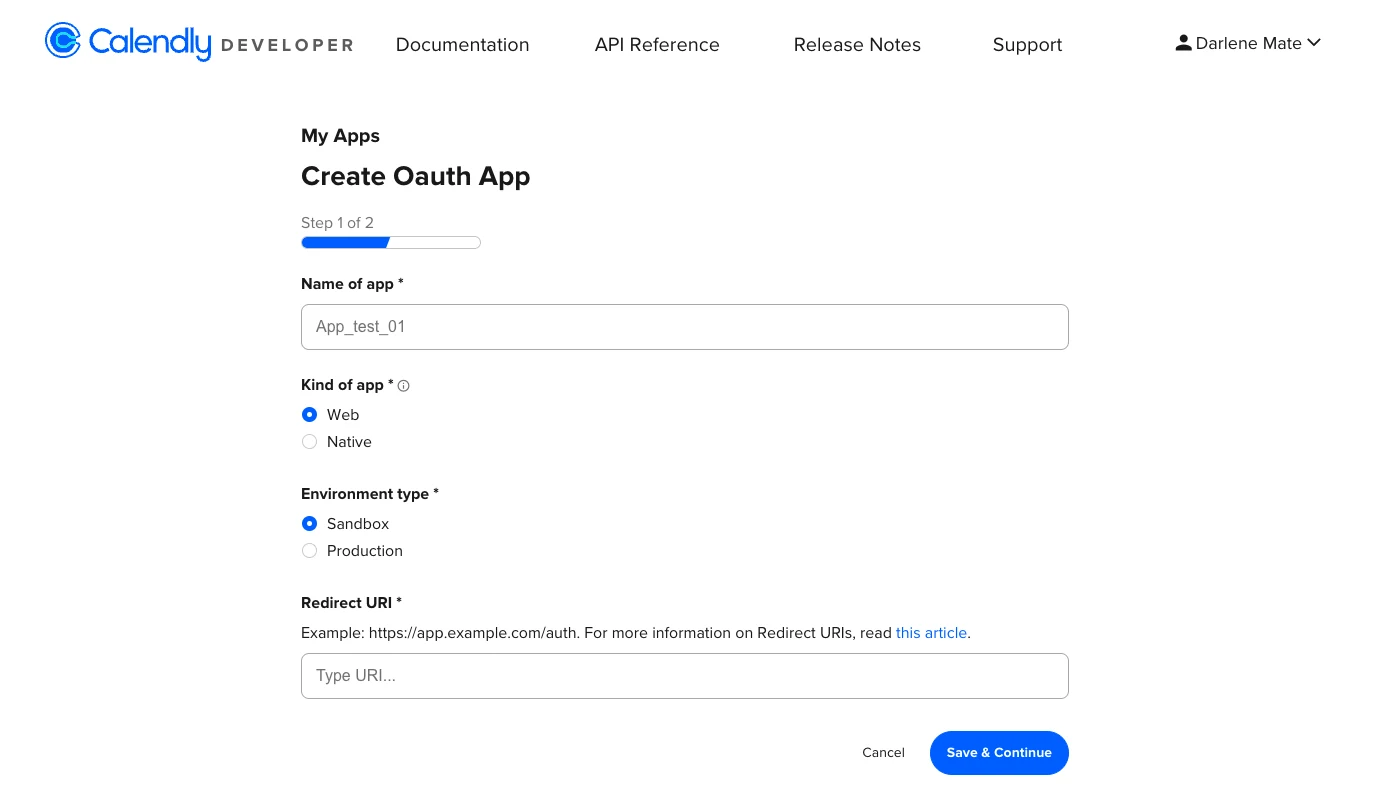Table of contents
The Developer Portal is your destination for all things Calendly APIs. It’s home to the resources developers and technology partners need to integrate with Calendly, including:
Self-serve app creation and management
Up-to-date documentation
API use cases
Release notes
Support information
Our latest updates to the Developer Portal make it easier and faster than ever to build custom Calendly apps and embedded solutions.
Here’s everything you need to know about the Developer Portal and Calendly APIs, including why you should integrate with Calendly, what you can build with these tools, and what’s new.
Calendly’s integration set: 3 API options to fit your needs
Calendly’s integration set includes three API options: API v2, Embed API, and Webhook.
API v2
API v2 is Calendly’s current, actively maintained API. It’s REST-based with predictable resource-oriented URLs. You can retrieve Calendly links, sync scheduled meetings, manage users, and much more.
“The Calendly API is very easy to navigate and to work with. The API’s rich documentation provided all the important information we needed to develop the Calendly app [on Make] so our users can automate scheduling workflows without writing any code.”
Darin Patterson
Make at Vice President of Product
Seamlessly integrate Calendly into your product with API v2. You can use OAuth 2.0 or personal access tokens based on who will use your application — many Calendly users via a public app, or just your internal team.
With API v2, you’ll see:
A more secure way to connect and retrieve customers’ data
Additional endpoints to support more use cases
Ability to manage your organization with admin-level permissions
Note: API v1 will be phased out by June 30, 2023. Learn how to migrate from API v1 to API v2 here.
Embed API
Embed is Calendly’s simpler, easy-to-use API option. Add a Calendly landing or booking page to your website by enabling one of three embed variations: inline, pop-up text, or pop-up widget.
General and advanced embed options — including text and style customizations — are available across a variety of website providers, including WordPress, Wix, Shopify, Squarespace, Unbounce, and more.
“Calendly embed API brings the best to the table: quick development with a small amount of code needed and an interface that integrates seamlessly into our product. Now our customers can effectively qualify their leads using Typeform and schedule meetings with them, all in a single interaction.”
Raúl Vallejo
Former Lead Product Manager at Typeform
Webhook
The Calendly Webhook is a friendly, lightweight API that lets you automatically receive Calendly data with webhook subscriptions whenever invitees schedule, cancel, or reschedule a meeting.
With webhooks, you can build integrated apps for your team or customers. (Keep reading for examples!)
Why integrate with Calendly?
You, your team, and your users can always benefit from time-saving features and automations.
When you integrate with Calendly, you can:
Automate and trigger actions in real-time: Trigger automations within your app when invitees schedule, cancel, or reschedule events with our webhook subscription.
Gain insight into your team’s meeting habits: Track and report on scheduled events across your organization. Act strategically based on analytics, such as time spent in meetings or the number of meetings to reach a sale.
Share meeting links directly from your product: Admins can easily share booking links from your native product, so users never need to navigate away. Calendly links can be sent for the user triggering the link or specific team members (for example, a sales rep you want to meet with a certain lead).
Let users register for Calendly without leaving your product: With our OAuth connection, users can create a Calendly account and start scheduling without leaving your product, eliminating drop-offs and enhancing their experience.
Integrating Calendly into your product can deliver a more modern, efficient scheduling experience, leading to more user retention and engagement.
What can you build?
With Calendly's APIs, you can quickly integrate scheduling functionality into your product, or customize and enhance how your team uses Calendly.
Here are some examples of what you can build:
An integration that pulls your users’ Calendly data into your product to store as incoming leads, prospects, or marketing contacts, like ActiveCampaign.
An app that triggers an additional action and automates processes. Some of our favorites are Zapier and Make.
An integration that lets your users embed a Calendly booking page within your product, like Typeform, Pendo, or Kajabi.
An integration that lets a user send a Calendly booking link directly through your product, such as Greenhouse.
Example: ActiveCampaign helps users get more done with their Calendly integration
ActiveCampaign, a leading automation platform specializing in marketing automation and CRM, built a native Calendly integration in 2019.
Using our APIs, their integration helps their users accelerate sales and marketing processes with automated meeting scheduling. To learn more, read about how ActiveCampaign identified the need to integrate with Calendly, how they did it, and the value it delivers to users.
“Using the Calendly APIs and associated documentation, we were able to build and launch an integration quickly — an integration that continues to grow in popularity, bringing additional automation capabilities through Calendly.”
Shay Howe
Senior Vice President at SVP Platform Strategy, ActiveCampaign
Ways to customize your team’s Calendly experience using APIs
In addition to building integrations, our APIs can customize how your internal team uses Calendly.
The possibilities are endless. API-enabled customizations allow you to:
Pull incoming Calendly data and send information to specific reps or agents based on predetermined constraints.
Build Calendly booking flows within your actual product, so you can streamline the tools your team uses.
Automatically pull and send Calendly links based on specific user actions.
Add unique visual elements to your Calendly experience, such as displaying Event Type info where it wouldn’t normally appear.
Enhance native integrations to better suit your needs.
What’s new in the Developer Portal?
We recently updated the Developer Portal experience to make it easier and faster than ever to create a developer account and manage applications.
With the new self-serve interface, you can:
Sign up for a developer account using your GitHub or Google login credentials.
Create or manage applications right from your Developer Portal — without needing to contact developer support.
Through features like the API explorer, documentation, tutorials, and self-serve app creation and management, you can now build integrations with Calendly's APIs more quickly and easily.
These changes mean shorter implementation times, a more streamlined integration process, and a better developer experience.
Our APIs are available to anyone with a Calendly account. A Professional plan or higher is required to access and build with our webhooks.
Calendly has new improvements, integrations, and APIs planned for the future, so make sure you subscribe to receive release notes. In the meantime, head to the Developer Portal and start building today!
Start building with Calendly APIs
Niraj Rana
Niraj is a Senior Product Manager at Calendly. He’s based in Atlanta, Georgia.
Related Articles
Don't leave your prospects, customers, and candidates waiting
Calendly eliminates the scheduling back and forth and helps you hit goals faster. Get started in seconds.
Calendly eliminates the scheduling back and forth and helps you hit goals faster. Get started in seconds.

